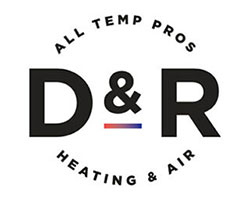Completing the search for your first home is an exhilarating experience. You’re likely juggling numerous details about making the right choice. We believe that gaining insight into your future HVAC system is crucial. The property’s HVAC system represents a significant investment and source of potential long-term costs, illustrating why a detailed inspection is important for first-time homebuyers.
In the following guide, we’ll outline seven tips for learning everything you can about a home’s heating and cooling system. And if you want a more in-depth opinion from the experts, don’t hesitate to contact D & R Heating & Air. Our seasoned technicians can share details about your options with industry insights you won’t find elsewhere.
1. Which Kind of HVAC System Does the Home Use?
Start by determining what kind of HVAC system the home features. Furnaces generally last longer than air conditioners, and newer types of HVAC products like heat pumps boast average life spans longer than ever. Tracking down the make and specific model ensures you have a clear understanding of how much routine maintenance it might need.
2. What Is the Current System’s Age?
It’s just as smart to learn how old the HVAC system is when you’re looking at a potential new home. On average, HVAC systems last about 10-12 years. Learning its approximate installation date helps you prepare for any needed servicing or considerations if it might eventually stop working. Older systems may be more vulnerable to problems, so fiscal planning for a replacement unit might be needed faster than expected.
3. Does the System Have a Warranty?
Be sure to check the HVAC system is covered by a warranty. If it is, you’ll appreciate how it can lower maintenance expenses. HVAC warranties should take care of parts and labor, but the details in each policy will vary. Review any terms that aren’t familiar to ensure you understand your coverage and the likelihood of out-of-pocket costs.
4. Has the System Ever Been Professionally Serviced or Maintained?
Don’t forget to check the maintenance history of the HVAC system, if such information is accessible. This service history can demonstrate if the system constantly broke down or how much upkeep was provided. Ask about records for key tasks like filter changes, which is a positive sign indicating regularly scheduled tune-ups.
5. Are You Aware of the System’s Energy Efficiency Ratings?
Finding a home that features an HVAC system with great energy efficiency can lead to smaller utility bills and a smaller environmental impact. Try and find the seasonal energy efficiency ratio (SEER) ratings for air conditioning along with the annual fuel utilization efficiency (AFUE) for furnaces. The higher the SEER rating, the more efficient the cooling over the whole season, while strong AFUE ratings illustrate that the fuel is efficiently converted into useable heat.
6. Can You Spot Trouble During Your Inspection?
Even if you don’t have experience in HVAC systems, you should still check out the HVAC system on your own. Keep an eye out for any concerning items that haven’t been mentioned by the seller. This can mean bizarre noises, spots with uneven heating or cooling and attempts at concealing any obvious damage.
7. Is an Experienced HVAC Technician Available to Help?
If you’re still hesitant to make an offer because of the overall state of the HVAC system, it’s wise to get input from trained HVAC professionals. They can spot things you might miss, such as leaking coolant, damage to the wiring or inefficient ductwork.
A Call with D & R Heating & Air Simplifies Your Home-Buying Journey
Finding your first home should be thrilling, and D & R Heating & Air will do everything possible to ensure yours is too. Reach out with us at 503-678-2517. We can go over the details about how our HVAC services ease your mind, giving you what you need to dive into home-ownership with confidence.
